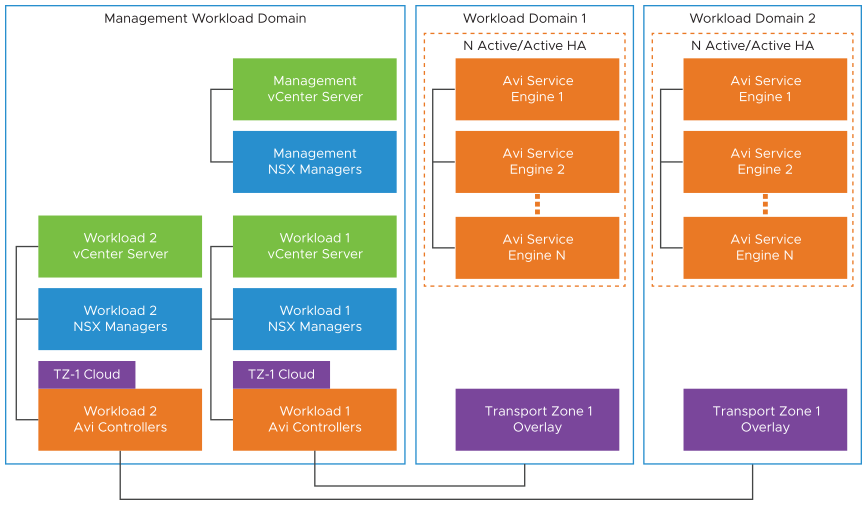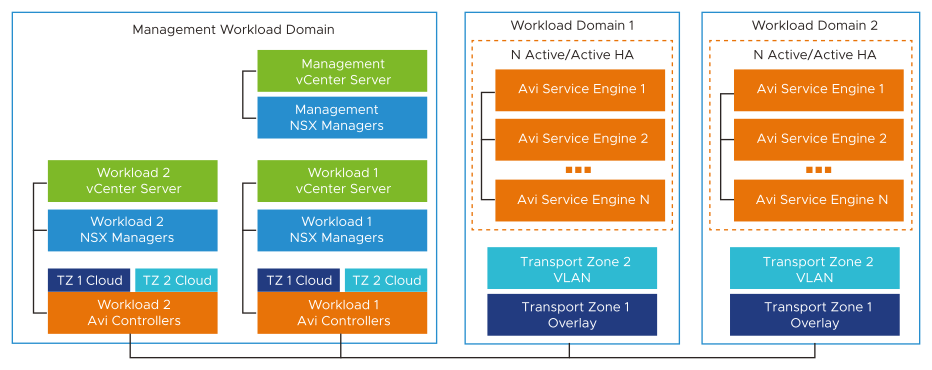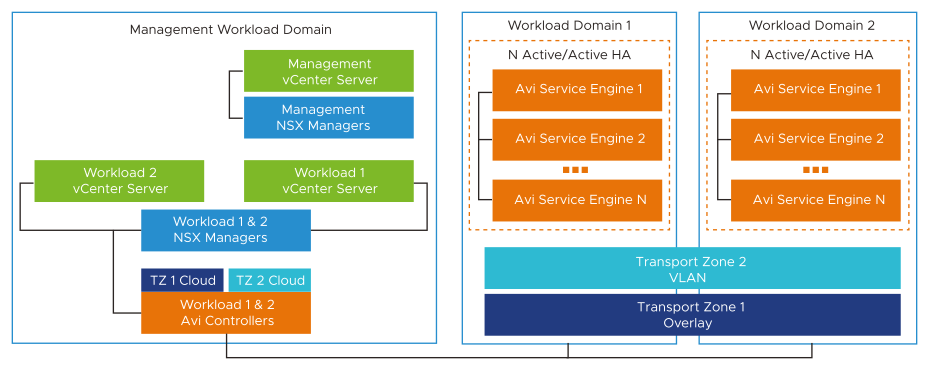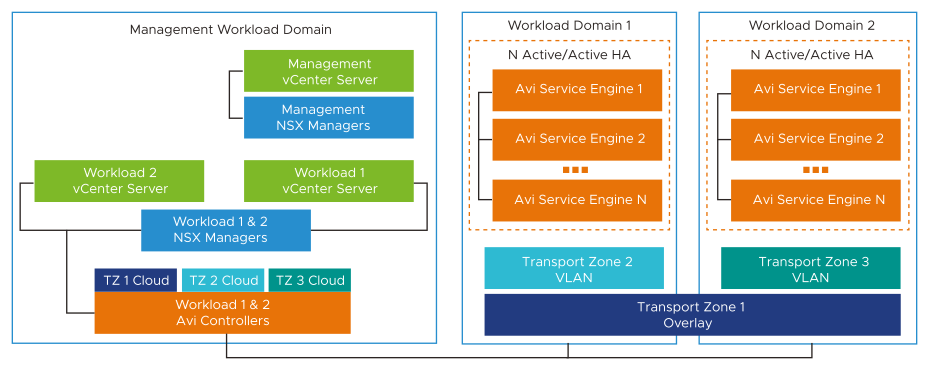An NSX-T Cloud connector are scoped to an NSX Manager cluster endpoint and a NSX transport zone. Therefore, for every new combination of NSX Manager cluster, NSX transport zone, a new NSX-T Cloud connector will be created on the Controller. The following models demonstrate typical configurations for VMware Cloud Foundation:

Dedicated NSX Manager cluster for each VI workload domain. Each NSX-T Data Center instance is configured with two transport zones. You need to create a unique NSX-T Cloud connector on the Controller for each of these transport zones.

Shared NSX Manager cluster between multiple VI workload domains. The NSX-T Data center instance is configured with two transport zones. Transport zones are stretched across VI Workload Domains. You need to create a unique NSX-T Cloud connector on the Controller for each of these transport zones.

Shared NSX Manager cluster between multiple VI workload domains. NSX-T Data Center instance is configured with three transport zones. One transport zones is stretched across VI Workload Domains. You need to create a unique NSX-T Cloud connector on the Controller for each of these transport zones.

NSX Edges have been omitted from the above figures depicting the NSX-T Cloud models.
Decision ID |
Design Decision |
Design Justification |
Design Implication |
|---|---|---|---|
AVI-CTLR-007 |
Create one NSX-T Cloud connector object on the Controller per transport zone configured on the NSX manager cluster that requires Load Balancing services.
Note:
Transport zone could be dedicated to a VI workload domain or shared across VI workload domains. |
Provides automated deployment of load-balanced applications through NSX-T Cloud integration. Allows for maximum flexibility, control, and isolation in terms of application deployment. |
None |
AVI-CTLR-008 |
Provide either a overlay-backed NSX segment connected to a Tier-1 logical router or a VLAN-backed NSX segment for the Service Engine management for the NSX-T Cloud of overlay type. |
This network is used for the Controller to the Service Engine connectivity. |
None |
AVI-CTLR-009 |
Provide one or more NSX managed VLAN segments as data networks for the NSX-T Cloud connector of VLAN type.
Note:
A single NSX-T Cloud connector of VLAN type can contain multiple data networks. Each data network should belong to a unique NSX managed VLAN segment. |
The Service Engines are placed on NSX managed VLAN segments. |
None |
AVI-CTLR-010 |
Provide a Tier-1 router and a connected overlay-backed NSX segment as data network for the NSX-T Cloud of overlay type.
Note:
A single NSX-T Cloud connector of overlay type can contain multiple data networks. Each data network must belong to a unique Tier-1 router. |
The Service Engines are placed on Overlay Segments created on these Tier-1 logical router(s). |
None |
AVI-CTLR-011 |
Provide an object name prefix when creating the NSX-T Cloud Connector on the NSX Advanced Load Balancer Controller. |
Used for uniquely identifying NSX-T Cloud Connector created resources on NSX Manager cluster and vCenter Server. |
None |